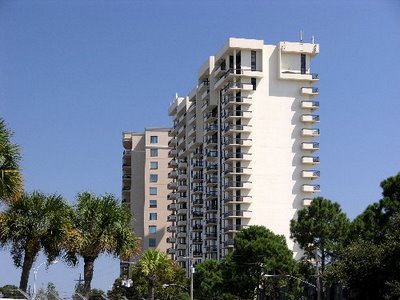Risky Business
 Investors and potential buyers are understandably skittish about getting into the condo business in New Orleans. But enough of them are jumping in to keep several condominium projects in the area on track.
Investors and potential buyers are understandably skittish about getting into the condo business in New Orleans. But enough of them are jumping in to keep several condominium projects in the area on track.
Hurricane Katrina sped along plans for a spate of new high-rise residential towers, but more than a quarter of the proposed housing units have already been killed or put on hold.Out-of-town investors "are circling like eagles" with capital ready to invest in downtown projects, said Kurt Weigle, executive director of the Downtown Development District. And inquiries from outside developers have increased five-fold, possibly because of special tax incentives being made available to building projects in hurricane-impacted areas.
But not all of the residential projects will be built, experts say. The pricetags on most of the announced projects have risen 30 percent due to escalating prices on labor and building materials, developers say. That big of an increase is giving pause to both the developers behind the condo towers and the potential condo buyers who, in some cases, are backing out of sales contracts when presented with the higher prices.
Furthermore, the Gulf Opportunity Zone Act, which created billions in subsidy programs to assist in the rebuilding of New Orleans, has been less encouraging of condominium projects, which enjoy no tax benefits under the program, said Gary Elkins, a local attorney specializing in tax credits.
On the surface this is good news for the economy in the short term. In the long term, the jury is still out. If these projects do get built but without sufficient clients to fill the units, the result will be an overbuilt market with undervalued properties and depressed revenue.
Partially completed and and vacant condominiums are not the kind of development we are looking for.

No comments:
Post a Comment